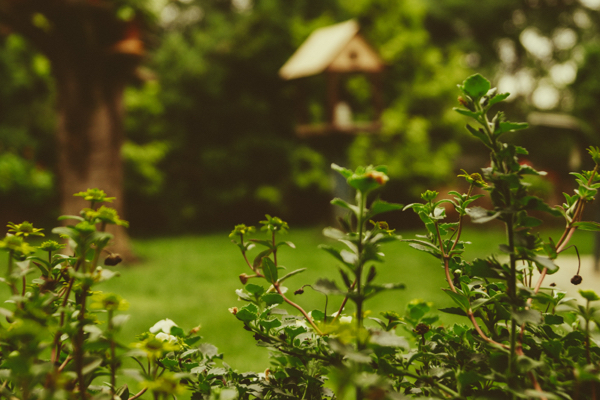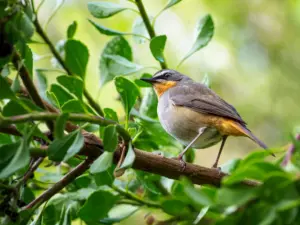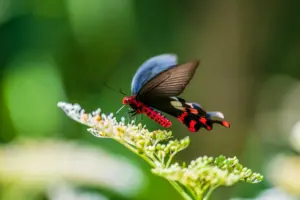
At Bud Design & Landscaping, we are passionate about creating beautiful outdoor spaces that don’t come at the expense of the environment. With increasing awareness of climate change and the importance of protecting our natural resources, more and more homeowners are turning to eco-friendly landscaping. A sustainable garden is not only better for the planet, but it can also be easier to maintain and provide long-term cost savings.
In this blog, we’ll explore practical steps you can take to create a sustainable garden in the UK, blending aesthetics with environmental responsibility.
A sustainable garden is designed with the environment in mind, using practices that conserve resources, reduce waste, and promote biodiversity. It’s about working with nature rather than against it, choosing plants, materials, and techniques that have minimal impact on the environment.
When it comes to garden landscaping, we specialise in designing sustainable gardens that are both eco-friendly and beautiful. Whether you’re starting from scratch or looking to make your existing garden more sustainable, we can help you make environmentally responsible choices.
Here are our top tips for creating a garden that’s good for both you and the planet:
One of the simplest ways to create a sustainable garden is by planting native species. Native plants are well adapted to the local climate and soil conditions, requiring less water, fertiliser, and maintenance. In the UK, this could include species like foxgloves, wild garlic, and hawthorn. Native plants also provide vital habitats for local wildlife, supporting biodiversity.
Water conservation is a key component of a sustainable garden. Installing a rainwater harvesting system, such as a water butt, allows you to collect rainwater for use in your garden. This reduces your reliance on mains water, cuts down on water bills, and helps prevent water wastage. Rainwater is also better for your plants as it’s free from the chemicals found in tap water.
When designing paths, patios, or driveways, consider using permeable materials that allow rainwater to soak into the ground rather than running off into drains. This helps to reduce the risk of flooding and replenishes groundwater supplies. Gravel, permeable block paving, and porous concrete are all excellent options for eco-friendly hardscaping.
A sustainable garden is one that supports the local ecosystem. Consider adding elements to your garden that encourage wildlife to thrive, such as bird feeders, insect hotels, and ponds. Planting a variety of flowering plants that bloom at different times of the year will also help to attract pollinators like bees and butterflies, which are crucial for a healthy environment.

Composting is an excellent way to reduce waste and provide your garden with nutrient-rich soil. By composting kitchen scraps, grass cuttings, and other organic materials, you can create your own natural fertiliser, reducing the need for chemical-based alternatives. Similarly, mulching your plants with organic materials like bark or leaf mould helps retain moisture, suppress weeds, and improve soil health over time.
When designing a sustainable garden, consider using recycled or reclaimed materials for structures like fencing, decking, or raised beds. Reclaimed wood, stone, and brick can add unique character to your garden while reducing the demand for new resources. Choosing recycled or upcycled materials also helps to reduce waste and your carbon footprint.
Pollinators like bees, butterflies, and hoverflies are vital for maintaining a healthy ecosystem. By planting a variety of nectar-rich flowers, you can support these important creatures while adding colour and beauty to your garden. Consider plants like lavender, heather, and wild marjoram, which are all excellent for attracting pollinators in the UK.

Creating a sustainable garden is an investment in the future—both for the environment and for your home. By making thoughtful, eco-friendly choices, you can reduce your environmental footprint, support local wildlife, and enjoy a beautiful garden that requires fewer resources to maintain.
At Bud Design & Landscaping, we believe that creating a sustainable garden doesn’t mean compromising on style. Our eco-friendly landscaping solutions are designed to meet your aesthetic preferences while minimising environmental impact. From native plant selection to rainwater harvesting systems, we’ll work with you to create a garden that’s as good for the environment as it is for your home.
Our team of experts is passionate about sustainable gardening practices and will guide you every step of the way. Whether you’re looking to completely redesign your garden or make small eco-friendly changes, we’re dedicated to helping our clients create sustainable gardens that are built to last.
Contact us today to learn more about how we can help you design and install an eco-friendly garden that’s perfect for your space.